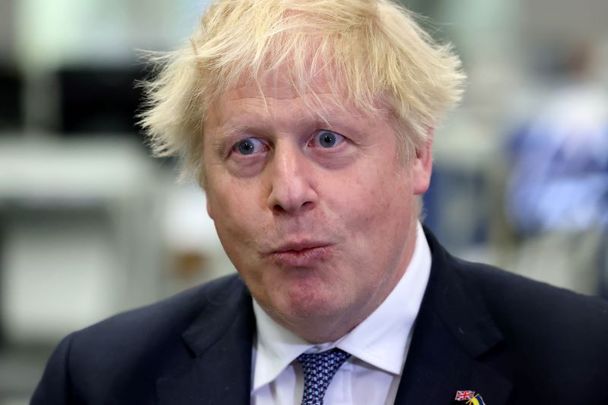When renouncing his British citizenship and taking up Irish citizenship last week, famed film director David Puttnam said he never believed such a day would come.
He announced his retirement from the House of Lords in October, citing the “pig ignorance” of some British legislators about Ireland among his reasons for leaving.
He is one of 1,200 British, up from 58 just a few years ago, who have had enough of Brexit Britain and asked for Irish citizenship.
It is indicative of the contempt many British now have for Prime Minister Boris Johnson and his leadership. “It has ceased to have the values I really believed it to have, and this is a very painful thing to say,” said Puttnam, acknowledged as one of the greatest filmmakers of his time, helming "Chariots of Fire" in 1981 and "The Killing Fields" in 1984.
Remarking on the long wait for his Irish citizenship certificate which he received in person during a ceremony in Killarney, Puttnam added, “I can tell you there are no queues in England” (for British passports.)
Brexit, of course, is at the heart of the dissatisfaction. Since it was passed in 2016, Britain has become a deeply divided nation. At the heart of the issue now is Johnson’s attempt to stay in power by pleasing his right-wing colleagues and placating restless unionists in Northern Ireland.
Meanwhile, in the British Parliament, a second reading of the bill to eviscerate the Northern Ireland Protocol is being discussed.
Johnson and his Foreign Secretary Liz Truss continued their bald face lying that the bill was about saving the Good Friday Agreement.
Truss stated she was bringing the bill forward “because I'm a patriot and a democrat and our number one priority is protecting peace and stability in Northern Ireland.” Liar liar.
The sheer effrontery is hard to watch. The British have ditched their partners in the Irish government, without whose full-blooded interaction there are genuine fears that the Good Friday Agreement will be in deep trouble.
Former British Prime Minister Theresa May launched an extraordinary attack on Johnson. She herself was deposed from power by Johnson on the Brexit issue and there is no love lost, but it was an extraordinary attack nonetheless.
May undercut Johnson and said she did not believe the bill would achieve the aim of restoring power-sharing institutions at Stormont. She said, “I actually started off by asking myself three questions. First of all, do I consider this to be legal under international law? Second, will it achieve its aims? Third, does it at least maintain the standing of the U.K. in the eyes of the world My answer to all three of those questions is no.”
Johnson is clinging to power. The Tories lost two by-elections last week, including a seat they had held for over 100 years.
That is a particularly dangerous scenario for Johnson. His trump card is that, like Donald Trump, his followers are accepting of his many foibles as long as he remained a reliable vote-getter. Based on what happened in the by-elections that is no longer true.
Brexit has proven to be an electoral graveyard for British politicians. It looks like Johnson will be the latest victim. And it’s his own fault.
*This editorial first appeared in the June 29 edition of the weekly Irish Voice newspaper, sister publication to IrishCentral.




Comments